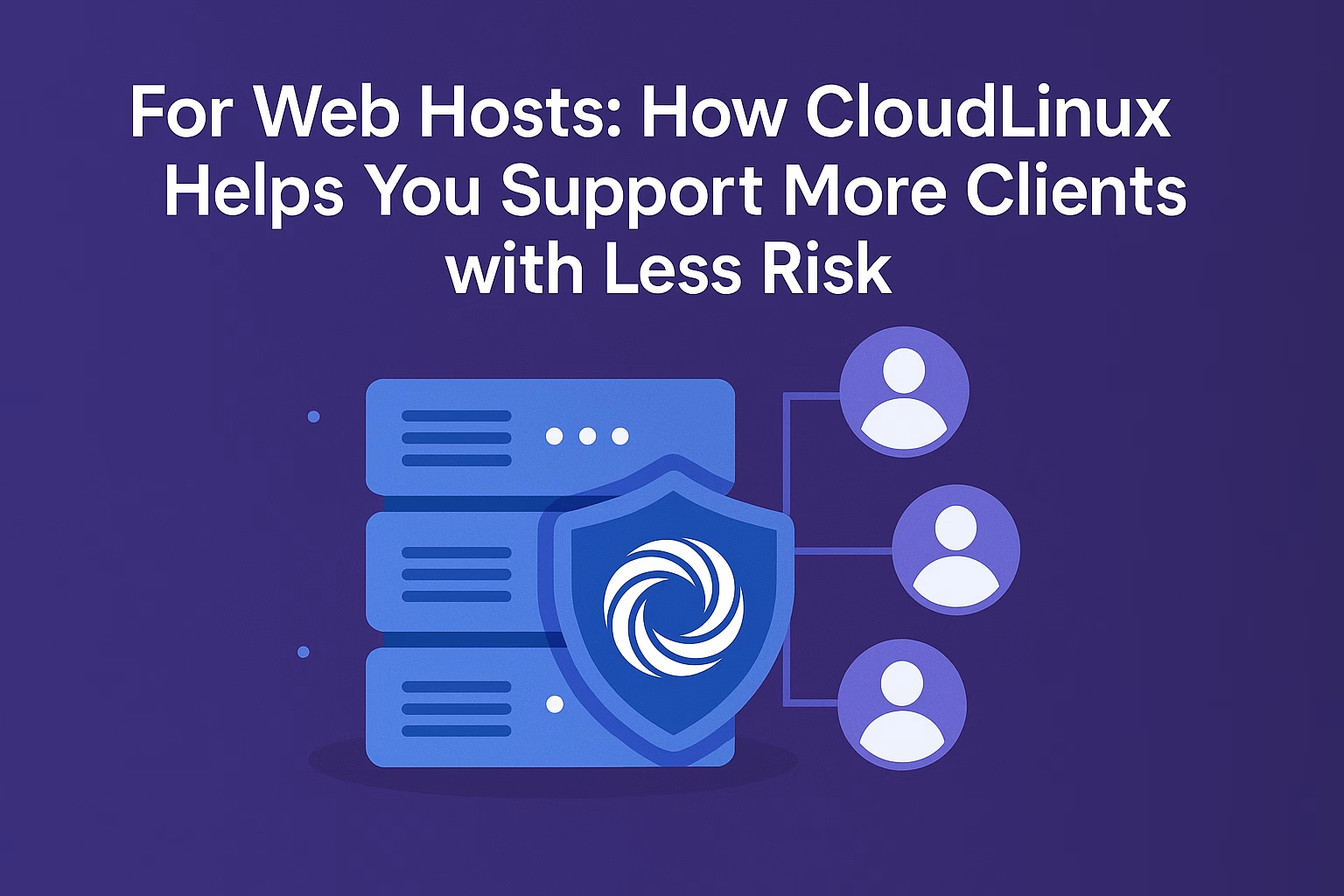If you’re in the business of hosting websites — whether through shared hosting, VPS, or reseller plans — your success depends on two things:
-
🟢 Keeping servers stable
-
🟢 Keeping clients happy
But as you scale and add more accounts, problems start to stack up:
-
One user can slow down others
-
Malware from a hacked site spreads
-
PHP version conflicts break compatibility
-
Your “budget” server suddenly becomes high-maintenance
That’s where CloudLinux OS steps in — the web hosting OS built specifically for environments just like yours.
Let’s explore why every serious hosting provider should be running CloudLinux, and how it lets you support more clients with less risk.
🧱 1. Resource Isolation with LVE
In traditional shared hosting, server resources are shared equally — which can lead to disaster when one client:
-
Gets a traffic spike
-
Runs a buggy script
-
Launches a spam campaign
With CloudLinux’s LVE (Lightweight Virtual Environment):
-
Each account gets fixed limits (CPU, RAM, I/O, etc.)
-
Abusers are throttled, not suspended
-
Other clients are unaffected
✅ Result: You can safely host more clients per server — without fear of a “bad neighbor” taking everyone down.
🔐 2. Stronger Security with CageFS
One of the biggest risks in shared hosting is cross-account access — when one compromised site can view or attack others.
CloudLinux solves this with CageFS, a virtualized file system that:
-
Keeps each user in their own secure “cage”
-
Prevents privilege escalation
-
Hides sensitive system files and binaries
✅ Even if a client’s site gets hacked, it won’t spread to your entire server.
🐘 3. MySQL Governor: Smarter Database Management
Heavy MySQL usage is a common issue when scaling shared hosting.
CloudLinux includes MySQL Governor, which:
-
Monitors per-user database consumption
-
Prevents heavy queries from affecting others
-
Ensures faster response times for everyone
✅ Avoids support tickets like “my site is so slow” — caused by someone else’s inefficient code.
⚙️ 4. Per-Account PHP Configuration
Hosting multiple clients means multiple PHP requirements.
With CloudLinux PHP Selector, each user can:
-
Choose their PHP version (5.6 to 8.x+)
-
Enable/disable PHP extensions
-
Customize memory limits, execution time, etc.
✅ Avoid compatibility issues and keep clients happy — no server-wide compromises needed.
📈 5. Higher Density = More Profit Per Server
Thanks to all the above features, CloudLinux helps you:
-
Host more clients on the same hardware
-
Reduce downtime and incidents
-
Cut down on abuse-related support
-
Improve client satisfaction and retention
✅ This translates directly into higher margins and lower churn.
🛒 Need CloudLinux Licenses? PLiKhost Can Help
PLiKhost is an official CloudLinux partner and offers:
-
✔️ Instant license activation
-
✔️ Affordable monthly pricing
-
✔️ Compatible with cPanel, DirectAdmin, and others
-
✔️ Installation and support available upon request
You can also bundle CloudLinux with your VPS or dedicated server from PLiKhost — making your hosting stack even more powerful.
👉 Order CloudLinux from PLiKhost and future-proof your hosting infrastructure.
✅ Final Thoughts
If you’re a hosting provider or plan to become one, CloudLinux isn’t just a nice-to-have — it’s a competitive advantage.
It lets you:
-
Offer better uptime
-
Reduce cross-user risks
-
Scale efficiently
-
Keep both your server and your support inbox calm
🟢 Power your hosting business with CloudLinux — and let PLiKhost handle the licensing and setup.






